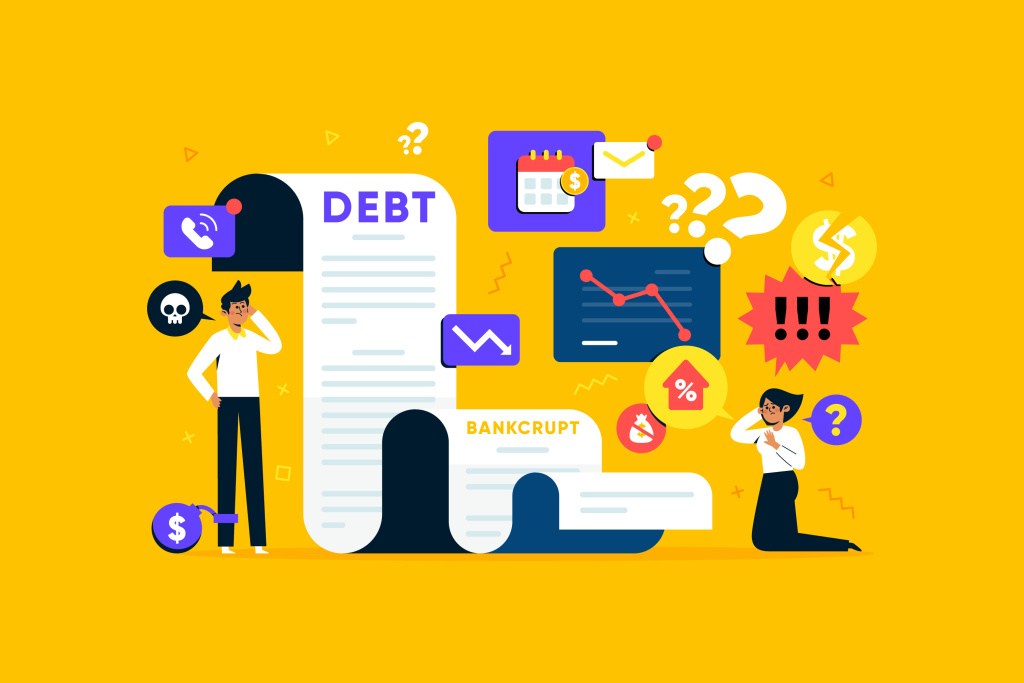TL;DR
Debt Consolidation Overview
Purpose: Simplifies payments and potentially reduces interest costs by combining multiple debts into one loan
Key considerations: Lower interest rates than current debts, reasonable fees, appropriate repayment timeline
Loan types: Secured (requires collateral, lower rates) vs. unsecured (no collateral, higher rates)
Standard terms: Fixed rates with 2-5 year repayment periods; may include origination fees or prepayment penalties
Best candidates: People with multiple high-interest debts who qualify for lower-rate consolidation loans
Not recommended for: Those with low credit scores, few debts, or already low interest rates
Credit impact: Can improve your score if payments are made on time
Warning: Could worsen debt problems if you continue accumulating new debt after consolidation
Debt consolidation is a great way to get out of debt, but it’s not for everyone. Before you decide to consolidate your debts, there are several factors that you should consider.
First and foremost, make sure that consolidating your debts will save you money in the long run. While it may seem like an attractive option at first glance, if the interest rate on the new loan is higher than what you’re currently paying, it won’t be worth it in the end.
Recommended Read: Career in Real Estate Investment
Additionally, make sure that any fees associated with consolidating your debt are reasonable and don’t outweigh potential savings from lower interest rates or monthly payments.
Finally, consider how much time it will take to pay off your consolidated debt – if too much time has passed since taking out the original loans, they may no longer be eligible for consolidation.
All things considered, if done right, debt consolidation can help free up some extra cash each month while also helping you become debt-free faster than ever before.
Compare Rates and Fees of Different Debt Consolidation Lenders
When comparing different debt consolidation lenders, it’s important to look at more than just the interest rate. You should also consider the fees associated with each lender, such as origination fees, late payment fees, and prepayment penalties.
Some lenders may offer additional benefits such as flexible payment options or access to financial education resources. Make sure to read through the fine print before signing any agreement to understand precisely what you are getting into.
Understanding How Debt Consolidation Works

image: Freepik.com”. This cover has been designed using assets from Freepik.com
Debt consolidation is a financial strategy involving one loan to pay off multiple debts. This can be an effective way to simplify debt payments and potentially save money on interest charges. Knowing the different types of loans available is essential to understand how debt consolidation works.
A secured loan requires collateral, such as a car or home, while an unsecured loan does not require any collateral. Secured loans typically have lower interest rates than unsecured loans, but they also come with more risk since you could lose your collateral if you fail to make payments.
When consolidating debt, you’ll need to decide which type of loan is best for your situation. You should also consider the repayment terms and fees associated with each loan option before making a decision. Once you’ve chosen a loan, you can use the funds to pay off all of your existing debts in full. This will leave you with just one monthly payment instead of several smaller ones, making managing your finances easier and helping you to stay on track with paying down your debt.
What to Look for in a Debt Consolidation Plan
When looking for a debt consolidation plan, it’s essential to consider the interest rate and fees associated with the loan. Ensure that the interest rate is lower than what you currently pay on your debts. Also, look for any hidden fees or charges that may be included in the loan.
It’s also important to consider how long it will take to pay off the loan. A longer repayment period can mean lower monthly payments, but it can also mean more interest paid over time. Additionally, ensure you understand all of the terms and conditions of the loan before signing any paperwork.
Finally, make sure that you have a plan in place to help you stay on track with your payments so that you don’t fall behind again.
Standard Repayment Terms and Fees Associated with Consolidation Loans
Generally speaking, consolidation loans come with fixed interest rates and repayment periods that range from two to five years. The amount of money you can borrow will depend on your credit score and income level.
Additionally, some lenders may charge origination fees or prepayment penalties for taking out a consolidation loan. It’s important to read through the fine print carefully before signing any documents to know exactly what you’re getting yourself into. Make sure that the terms of the loan are reasonable and that you can afford the monthly payments without putting too much strain on your budget.
Is Debt Consolidation the Right Choice for You?
Debt consolidation is a great option for those who are struggling to manage multiple debts. It can help you simplify your debt payments, reduce the amount of interest you pay, and even lower your monthly payments. However, it’s essential to understand that debt consolidation isn’t always the right choice for everyone. Before making any decisions, it’s important to consider all your options and determine which one is best for your financial situation.
Debt consolidation may be a good option if you have multiple debts with high-interest rates. By consolidating all your debts into one loan with a lower interest rate, you can save money on interest and make it easier to keep track of your payments. However, if you have a low credit score or don’t qualify for a loan with a low-interest rate, debt consolidation may not be the best choice for you.
Additionally, consolidating debts may not save you much money in the long run if you have only one or two debts with relatively low-interest rates. Before deciding whether or not debt consolidation is right for you, it’s essential to do some research and compare different options. Consider talking to a financial advisor or credit counselor who can help guide you through the process and provide advice tailored to your individual needs.
Weighing the Pros and Cons of Debt Consolidation
When it comes to debt consolidation, there are both pros and cons that need to be taken into consideration. On the plus side, debt consolidation can help you save money by reducing your interest rate and simplifying your payments. It can also help you pay off your debt faster, as you’ll only have one monthly payment. Additionally, consolidating your debts can help improve your credit score if you make all your payments on time.
On the other hand, debt consolidation can also have some drawbacks. For example, if you don’t qualify for a low-interest loan or balance transfer card, consolidating your debts may not be the best option. Additionally, if you don’t stick to a budget and continue using credit cards after consolidating them, you could end up in even more debt than before. Ultimately, it’s important to weigh the pros and cons of debt consolidation carefully before making any decisions about how to manage your finances.
Assessing Your Credit History to Secure the Best Loan Rates
When it comes to assessing your credit history to secure the best loan rates, there are a few key factors that you should consider. First and foremost, you should ensure that all your accounts are in good standing. This means that all your payments have been made on time, and there is no outstanding debt. Additionally, you should check your credit score to ensure it is within an acceptable range for lenders. If it is not, you may need to improve it before applying for a loan.
To improve your credit score, make sure to pay all of your bills on time and in full each month. This will help improve your payment history, which is one of the most critical factors in determining your credit score. Additionally, try to keep your credit utilization ratio low by not using more than 30% of your available credit limit at any given time. Finally, consider applying for a secured credit card or a small loan from a reputable lender to build up a positive payment history over time. With consistent effort and dedication, you should be able to improve your credit score in no time.

